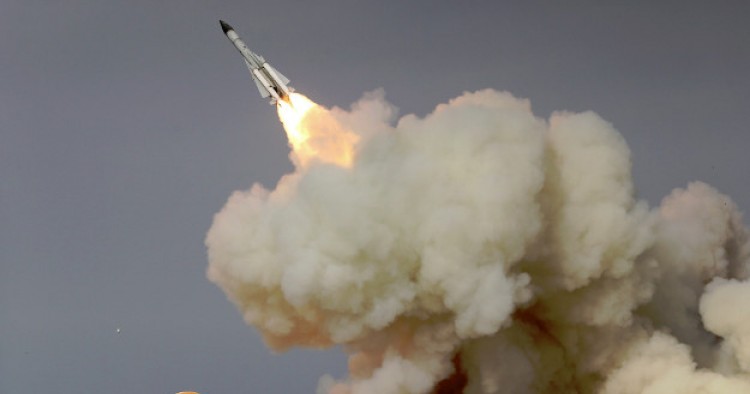Iran’s Foreign Ministry has cautioned that the G7 should avoid heightening tension over Tehran’s controversial missile program, and reiterated that the country’s missile and other defense-related activities are not related to the nuclear accord Iran signed with world powers in July 2015. Bahram Ghassemi, the ministry’s spokesman, stressed that International Atomic Energy Agency (I.A.E.A.) has confirmed that Iran’s has fully complied with the terms of the Joint Comprehensive Plan of Action, and called on the United States and five other signatories of the agreement to do their part and remove remaining sanctions against Iran. Ghassemi claimed that Iran’s missile program is for defensive purposes, does not pose threat to neighboring countries, and is part of the country’s defense capabilities to promote regional stability.
Comment: Ghassemi’s remarks were in reaction to a joint communique issued by the G7 foreign ministers’ meeting in Italy earlier this week. The statement called on Iran to “strictly abide” by all its nuclear related commitments. It further said: “UN Security Council Resolution 2231 needs to be fully implemented, including its provisions prohibiting the transfer of arms. We deeply regret Iran’s testing of ballistic missiles; as such tests are inconsistent with UN Security Council Resolution 2231. We call upon Iran to play a constructive regional role by contributing to efforts to achieve political solutions, reconciliation and peace in Syria, Iraq, and Yemen and other parts of the region and to cooperate in countering the spread of terrorism and violent extremism. We also call on Iran to comply with its international human rights obligations and in particular to ensure freedom of expression and to end arbitrary detentions and executions.”
Since President Donald Trump took office in January, tension between Washington and Tehran over the latter’s missile program has been escalating. After Iran test-fired a new medium-range ballistic missile in late January, the Trump administration put the country “on notice” and demanded a halt to any further ballistic missile tests, arguing such a move violates the U.N. Security Council Resolution 2231. But Iran dismissed Washington’s warnings; and in an act of provocation days later, the Iranian military test-fired a surface-to-air missile from the same launch pad used for the January 28 medium-range ballistic missile that had started the tension between Washington and Tehran. The deputy commander of the Islamic Revolution Guards Corps (I.R.G.C.), Brigadier General Hossein Salami, also stressed that Iran would continue to develop its military capabilities “at all cost” and will test-fire more advanced missiles in the future.
While Iranian leaders argue that the country’s ballistic missiles do not violate the resolution because they are not designed to carry nuclear warheads, Western officials say some of the missiles Iran has tested after the 2015 nuclear deal have been "inherently capable of delivering nuclear weapons" and are "in defiance of" the U.N. resolution.
Iranian leaders’ repeated call for the annihilation of Israel also further discredits Iranian diplomats’ claim that their country’s missiles are only for defensive purposes and do not pose any threat to regional countries. The Islamic Republic’s Sejjil missile with a range of about 1240 miles and its medium-range Shahab-3 can both reach Israel. Indeed, in March 2016, Iran test-fired two ballistic missiles and one of them had “Israel should be wiped off the Earth” inscribed on it in Hebrew.
The Middle East Institute (MEI) is an independent, non-partisan, non-for-profit, educational organization. It does not engage in advocacy and its scholars’ opinions are their own. MEI welcomes financial donations, but retains sole editorial control over its work and its publications reflect only the authors’ views. For a listing of MEI donors, please click here.













